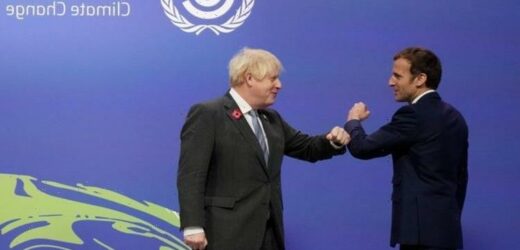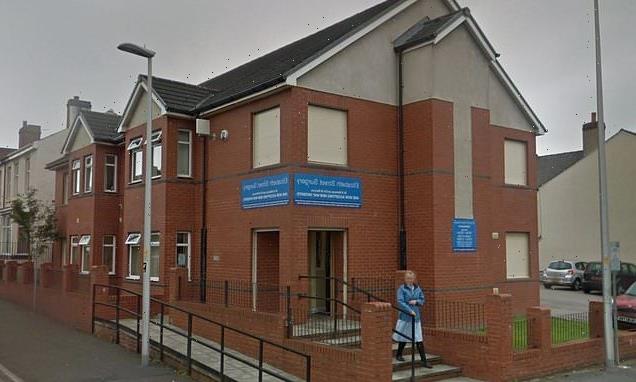COP26: Emmanuel Macron meets Boris Johnson in Glasgow
We use your sign-up to provide content in ways you’ve consented to and to improve our understanding of you. This may include adverts from us and 3rd parties based on our understanding. You can unsubscribe at any time. More info
The UK Space Agency has now provided funding for the MicroCarb mission, which will launch the first European satellite dedicated to measuring atmospheric carbon dioxide from all around the world, the main greenhouse gas caused by human activity. The deal was signed at the COP26 climate summit in Glasgow by Dr Paul Bate, Chief Executive of the UK Space Agency, and Laurence Monnoyer-Smith, Director of Sustainable Development of the French space agency, CNES.
The UK will provide a further £3.9million for the mission, due to launch in early 2023.
The new funding takes the UK’s contribution to £13.9million since the two agencies agreed to work on the mission.
MicroCarb’s data will make a great contribution to tackling the climate crisis by providing valuable insight as to how much carbon is being emitted by natural processes and how much by human activities.
It will measure the CO2 with extreme precision and be able to detect the changes associated with surface emissions and uptake across the world from our cities, forests and oceans.


A crucial feature of the satellite is its special city-scanning observing mode that will allow the mapping of the CO2 distribution across cities to limit emissions from cities that are responsible for high levels of emissions.
This information will in turn help inform decision-makers as to how best to tackle the climate crisis.
This also comes as another landmark deal between the UK and India will be unveiled at COP26 today to create a clean energy-sharing system of renewable technologies, known as the Green Grids Initiative – One Sun One World One Grid.
UK Science Minister George Freeman said of the MicroCarb mission: “The UK is leading the way in using satellites in space to monitor, understand and tackle climate change.
“Our National Space Strategy sets out our ambition to tackle global challenges through international collaboration, consolidating our status as a science and technology superpower.

“MicroCarb puts our space sector at the heart of a major European space mission which will benefit global efforts to achieve Net Zero and build a more sustainable future.”
The new funding will go towards completing the construction and testing of the satellite, which will be led by Thales Alenia Space at the RAL Space assembly and test facilities on the Harwell Space Cluster, in Oxfordshire.
Funds will also go towards the National Centre for Earth Observation experts at the universities of Leicester and Edinburgh to translate atmospheric CO2 observation into maps that show carbon sources and sinks and the National Physical Laboratory, in Teddington, to understand how instrument and observation aspects can contribute to understanding the data.
Laurence Monnoyer-Smith, Director of Sustainable Development of CNES, said: “CNES is strongly supporting France’s efforts to reach the Paris Agreement’s target.
DON’T MISS
China among 100 nations to join UK in ‘unprecedented’ £14bn pledge [REPORT]
AstraZeneca and Pfizer jabs linked with new side effect [INSIGHT]
Archaeologists stunned by discovery that ‘revolutionised Bible’ [REVEAL]


“We are therefore very happy to collaborate with the UK Space Agency to develop this ambitious and innovative mission which will bring precious knowledge on where CO2 is most emitted and captured on the planet Earth and how these fluxes will evolve under the influence of the climate change.”
Data from MicroCarb will help monitor international progress in meeting the Paris Agreement climate target of limiting global surface warming to far below 2ºC of pre-industrial temperatures, a target set back in 2015 at the previous climate summit.
World leaders were recently warned that it is crucial to prevent global temperatures from rising after the UN published their IPCC climate report that warned that a failure to do so would be a “code red” for humanity.
But this deal could also signal progress in France and Britain’s relationship, which has become more turbulent in recent months over the post-Brexit fishing disputes.
Leading scientists warned French President Emmanuel Macron and Prime Minister Boris Johnson to squash their beef as fears the arguments would hinder progress at the crucial COP26 climate summit.
COP26 attendees will be hoping that the new deal will do enough to prevent important negotiations from being overshadowed by the Anglo-French tension.
Source: Read Full Article

